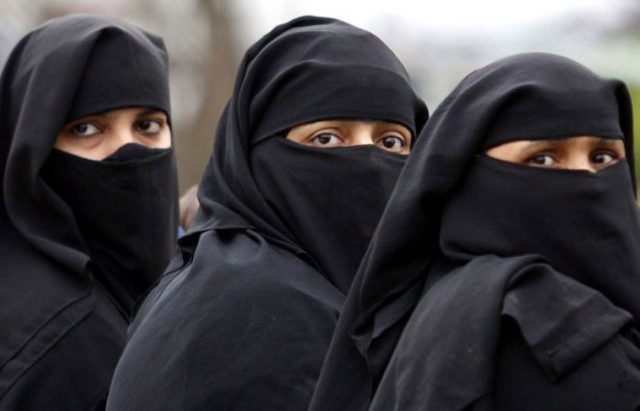Sofia, 13 Muharram 1438/14 October 2016 (MINA) – Bulgaria is the latest European country to ban full-face veils in public places, sparking a debate among Saudis about whether such bans can be considered a restriction on personal rights and religious freedom, Saudi Gazette reported on Friday.
Bans on veils that completely cover the face have been imposed by a number of European countries in what they call a measure to protect public security and reduce fear of terrorism after the recent spate of attacks in Germany and France.
Although several European countries are considering similar steps, in early August the German interior minister rejected demands for such a ban.
France is home to around 5 million Muslims and was the first European country to ban full-face veils in the public places. The country also prohibited burkini earlier this year for a brief period. In 2011, Belgium also imposed a ban on full-face veils in public places.
Also Read: Harvard Builds Archive of Israeli Life, Preparing for “May Not Survive”
Although Spain and Italy have no national bans on face coverings, in a few public places, including municipal offices, the city of Barcelona, two smaller towns in Catalonia, and some Italian towns, bans are in place.
Some Saudis believe that European countries have the right to impose rules and regulations concerning face veils, in the same way many Arab countries apply laws that govern women’s appearance in public. They also mentioned that banning the face veil would increase security, especially after the recent terrorist attacks.
Debate among Saudis
Also Read: UNIFIL Condemns Israeli Tank Fire Targeting Peacekeepers in South Lebanon
Arabs support such bans, some are against these laws, saying that the ban restricts individual rights and religious freedom, which negatively affects a Muslim’s identity.
Reema Sameer, a Saudi female in her late 20s who came back from Europe last month, said any country reserves the right to ban the face veil, which is unfamiliar to their culture. She said many Europeans were curious and would stare at women wearing full-face veils. She mentioned that in Europe, Muslim women can wear veils covering their hair without any problems.
“We should respect their rules in the same way they respect our rules, by wearing abaya for example, when they visit our countries. For Europeans, they want to impose this new law for security reasons, and also they want to see the face to identify a person,” she said.
Dalal Saqr, a Saudi female in her 20s, said: “I think that there are logical reasons related to public security and it is the country’s right to ban the full-face veil. However, banning burkini is part of intervening in the personal freedom, since wearing it would not risk the security of a country. Implementing these rules would probably reduce the percentage of Muslim tourists, especially those from the Gulf.”
Also Read: Israel Fires on UNIFIL Peacekeepers in Southern Lebanon
For some Saudis, full-face coverings should not be banned because at the end of the day, each person should be able to do as they wish. a
One young Saudi, Doa’a Samarqandi, said: “If we try to reverse the situation and talk about a more conservative non-Muslim culture, like nuns or the Amish, I believe things would be different. It’s a personal choice just like choosing what to wear to work today; only it has to do with a strong belief and a powerful commitment to something derived genuinely by one’s faith in God.”
Saudi teacher Hadeel Mohammed said she believes that wearing a full-face veil and the burkini are part of a person’s personal and religious freedom. However, in her opinion, the respect should be mutual; females who cover their faces should respect a country’s laws and avoid creating problems during travel. (T/R07/R01)
Mi’raj Islami News Agency (MINA)
Also Read: US Special Envoy to Meet with Hamas Official


































 Mina Indonesia
Mina Indonesia Mina Arabic
Mina Arabic